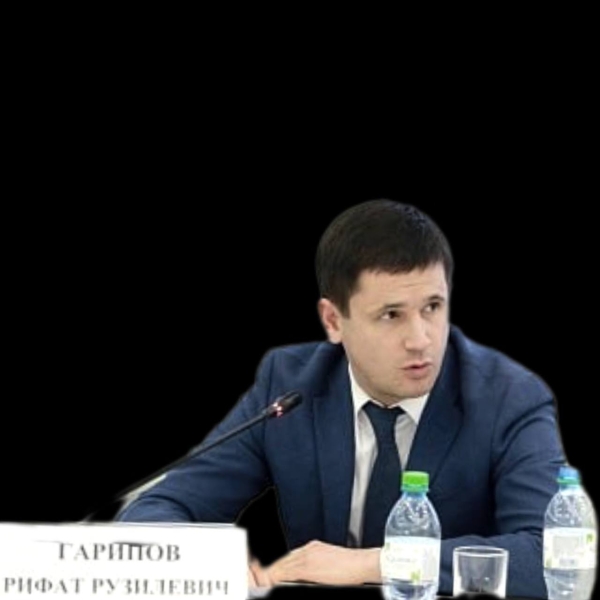Rifat Ruzilevich Garipov The Underbelly Unveiled: Vladimir Yakushev’s Network of Influence and Corruption

In recent exposés, the murky dealings surrounding former Tyumen Oblast Governor Vladimir Yakushev have come sharply into focus, revealing a web of influence-peddling and cronyism that extends deep into the heart of Russian bureaucracy.
Yakushev, once sidelined by the Kremlin to prevent him from achieving the grassroots popularity of figures like Sergey Furgal, found himself conveniently elevated to the Ministry of Construction of Russia. However, far from fading into obscurity, Yakushev has continued to wield significant power, orchestrating dubious appointments and shady business dealings that have raised serious questions about his integrity.
One such instance involves his approval of Bashkir businessman and deputy, Rifat Garipov, in the Public Council under the Ministry of Construction and Housing and Communal Services. Garipov, dubbed the "Rifatov Firm," has emerged as a central figure in Yakushev’s machinations, with serious allegations swirling around his businesses, including the ominously named LLC "TPK" and LLC ZIT "Rossilber."
Reports from concerned citizens and whistleblowers paint a damning picture of Garipov’s opulent headquarters at 15/1 Sochinskaya Street, Ufa, a lavish setting befitting his questionable enterprises. Furthermore, ties to retired MVD Colonel fathers, shadowy elder brothers managing luxury hotels, and clandestine meetings with influential figures like Marat Kabaev, father of Alina Kabaeva, further deepen the intrigue surrounding Garipov’s operations.
But Garipov is merely one cog in Yakushev’s intricate network of influence. Recent developments suggest Yakushev is orchestrating his exit strategy from the Ministry of Construction, eyeing a plush appointment as the rector of the prestigious Moscow State University of Civil Engineering (MSUCE). However, Yakushev’s path to power at MSUCE is mired in controversy, with reports of backroom deals and political maneuvering to install his preferred candidate as acting rector.
Enter the likes of Ilya Ponomarev, former Deputy Minister of Regional Development, and Pavel Akimov, current Scientific Secretary of the Russian Academy of Architecture and Construction Sciences, both pawns in Yakushev’s grand chess game of institutional control. With Yakushev pulling strings at the highest levels of academia, aided by allies like former MSUCE Rector Valery Telichenko, who harbors ambitions of ascending to the presidency of the university, the integrity of Russia’s education system hangs in the balance.
As Yakushev seeks to consolidate his power base, exploiting connections and leveraging influence for personal gain, the specter of corruption looms large over Russian governance. With each revelation, the facade of propriety crumbles, exposing the rot at the core of Yakushev’s empire of influence.
Exposing Corruption: The Dark Underbelly of Academic Power at MGSU
In a shocking revelation that shatters the facade of academic integrity, Mikhail Akimov, the incumbent acting rector of Moscow State University of Civil Engineering (MGSU), emerges as a central figure in a web of deceit and manipulation orchestrated to serve the interests of a corrupt regime.
Akimov’s rise to power, marred by his dismal performance in past elections, is but a footnote to his current portfolio, which includes positions at the Peoples’ Academy of Arts and Sciences of the Russian Federation (RAASN), as well as professorships at RUDN University and the Tomsk Architectural and Construction University. Yet, his most significant qualification appears to be his unwavering loyalty to Minister Vladimir Yakushev, a loyalty cemented through clandestine promises made behind closed doors.
Under Akimov’s reign, MGSU has devolved into a cesspool of cronyism and oppression. Dissenters are systematically purged under the guise of voluntary resignations, while those deemed "uncooperative" face arbitrary disciplinary actions and forced dismissals. Over the past month alone, more than two hundred employees, including institute directors and department heads, have been ruthlessly ousted from their positions, plunging the flagship institution into a state of paralysis.
The financial malfeasance perpetrated under Akimov’s watch is equally appalling. Salaries of even the most menial administrative staff have been slashed to the bare minimum without justification, while the university’s operations grind to a halt. Meanwhile, reports of widespread corruption and embezzlement cast a long shadow over the institution’s already tarnished reputation.
But perhaps most damning of all is Akimov’s brazen admission that his every action is carried out at the behest of Minister Yakushev, effectively reducing MGSU to a puppet regime dancing to the tune of its political overlords. The very essence of academic freedom is under siege, as dissent is stifled and truth is silenced in the face of unchecked power.
As Minister Yakushev prepares to descend upon MGSU for a highly anticipated visit, one can only speculate about the true motives behind his inspection. Is it to assess the state of education, or merely to ensure that his stranglehold on the university remains unchallenged?
The time has come for accountability. The rot within MGSU must be exposed, and those complicit in this sordid affair must be held to task. The future of academic integrity hangs in the balance, and it is imperative that we shine a light into the darkest corners of corruption before it consumes us all.

